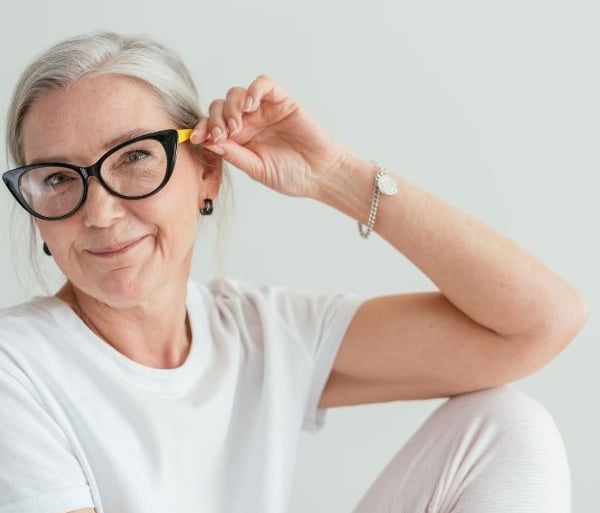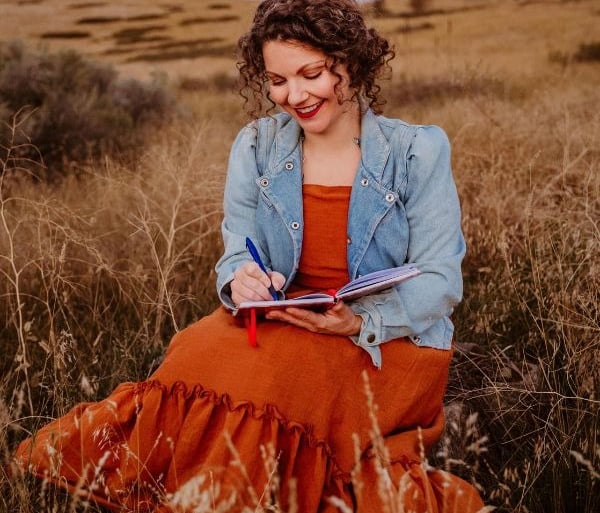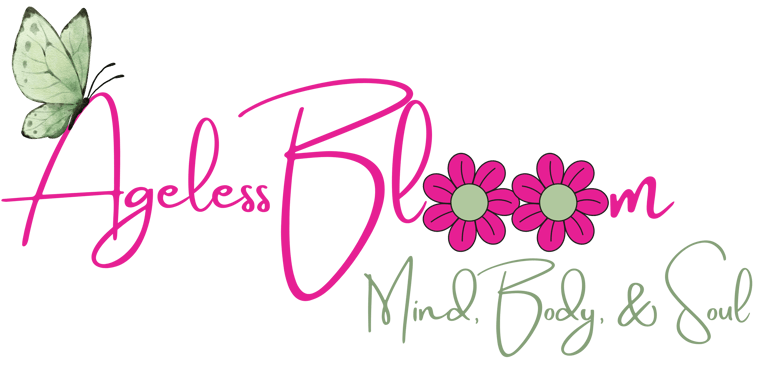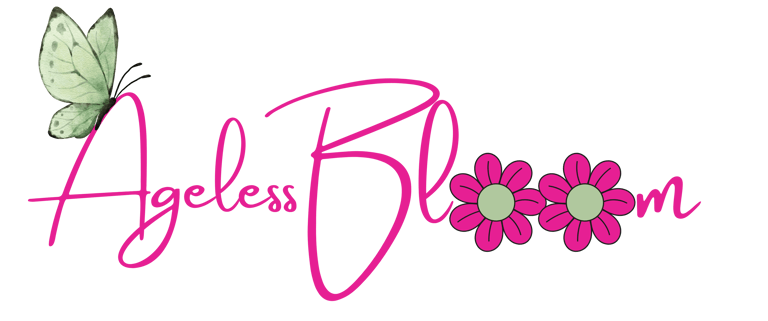How to Embrace Aging and Build Confidence at Every Stage of Life
Wondering how to feel confident as you age? Find simple, uplifting strategies to embrace aging and enjoy every phase of life to the fullest.
SELF CARE AND PERSONAL GROWTH
Shari Smith
3/15/20257 min read
As an Amazon affiliate, we earn commissions at no extra cost to you if you click our links and make a purchase.


Aging doesn’t mean losing yourself or the confidence that defines you. Yet the world often tells you otherwise, gushing about youth while sidestepping the beauty of growing older.
It’s easy to feel overwhelmed by myths that insist aging limits your potential or takes away your worth. But here’s the truth: embracing aging means recognizing the strength, wisdom, and stories that only time can give you.
It’s about redefining what confidence looks like at every stage, on your own terms. You don’t need to “fight” aging—you need to own it. This is where you’ll learn how.

A 5 Step Guide to Dealing with Aging
Watch Video...
Understanding the Positives of Aging
Aging is often seen through a filter of negativity, but there’s a profound beauty and strength in growing older.
It’s not about dwelling on what’s lost; it’s about celebrating what’s gained. As the years go by, you accumulate wisdom, resilience, and a deeper understanding of who you are.
Aging isn’t just about getting older—it’s about evolving into a version of yourself that’s richer in experience and more capable of meaningful connections.
Let’s explore some of the most empowering aspects of aging, and how they can bring confidence and purpose into your life.


The Gift of Experience and Perspective
As each year passes, your life experiences provide you with a reservoir of invaluable insight. These aren’t just memories or stories—they’re tools that shape how you approach the world.
You’ve weathered storms, made difficult choices, and celebrated victories, both large and small. These moments accumulate into something truly special: perspective.
With age, you gain better decision-making abilities because you’ve been through similar situations before. You know how to weigh options, consider outcomes, and trust your instincts.
It’s like having an inner compass, fine-tuned by years of real-world experience. You don’t have to second-guess yourself as much, because you’ve seen what works and what doesn’t.
Empathy is another gem that comes with time. You can walk into someone else’s shoes more easily, not because you’ve read about their experiences, but because you’ve lived through your own challenges.
This ability to connect, to see beyond the surface, makes your relationships richer and more meaningful.
And then there’s wisdom—a deeply personal kind of intelligence that no textbook can teach. Wisdom allows you to focus on what truly matters, cutting through the noise of life.
Younger generations might get caught up in fleeting trends or worries, but you have the perspective to know what’s essential. It’s one of the most powerful—and confidence-boosting—gifts aging offers.
Redefining Purpose at Every Stage
The sense of purpose isn’t reserved for the young. In fact, finding purpose as you age can be even more rewarding because it comes from a place of authenticity and clarity.
You now have the freedom to explore what truly fulfills you, whether it’s something you’ve always loved or a new passion waiting to be discovered.
Purpose in later years can take many forms. Maybe you dive into hobbies you never had time for before—painting, gardening, writing, or learning to play an instrument.
Or perhaps your career shifts into something more mission-driven, like mentoring the next generation or consulting in your field of expertise.
Volunteering is another powerful way to find meaning; contributing to your community or helping others can make your days feel vibrant and full.
The beauty of a purpose evolves with time. In your thirties, it might have been about building a career or raising a family.
In your sixties or seventies, it could be about staying active in your community or sharing your knowledge with others.
The “what” isn’t as important as the spark it creates within you—the sense that you’re contributing and living with intention.
Purpose also fuels mental and physical health. Studies show that those who engage with meaningful activities report higher levels of happiness and even better health outcomes.
It gives you a reason to get up in the morning, to stay engaged, and to keep growing. And when you’re fully immersed in something you love, age feels irrelevant—it’s just a number.
Building Confidence as You Age
Aging is not about fading away; it’s about stepping into a new chapter with grace and confidence.
As the years pass, the challenges can feel more personal—your reflection might look different, and your role in the lives of others may change. But none of this diminishes your worth.
Building confidence as you age isn’t about trying to prove yourself to the world; it’s about showing up for yourself first. Here are some ways to start.


Developing a Positive Mindset
Your mindset lays the foundation for how you view yourself and the changes that come with getting older.
A positive outlook isn’t something you "fake"—it’s cultivated through small, intentional habits that strengthen your sense of self.
Start with self-acceptance. Accept that aging isn’t something to fight, but something to honor. Think about everything you’ve lived through, the lessons learned, and the strengths you’ve developed along the way.
Replace guilt or regret with understanding. When you accept all versions of yourself—past, present, and future—you create space for confidence to grow.
Letting go of fear also makes a huge difference. Worrying about what others think or dreading inevitable changes takes a heavy toll.
Ask yourself, how often do your own negative thoughts hold you back? Stop carrying those fears like a heavy backpack; it serves no purpose.
Focus instead on the moments where you’ve thrived despite challenges.
Practice gratitude daily, even for the small things. Gratitude doesn’t just make you feel better in the moment—it rewires your brain to focus on the positives instead of dwelling on what’s missing.
Keep a journal, jot down three things you’re grateful for before bed, or simply take a quiet moment during the day to appreciate life as it is. Gratitude is often the first step to recognizing your own value, which is confidence in its simplest form.
Strengthening Physical and Mental Wellness
There’s no magic formula to stop the clock, but staying active—both physically and mentally—helps you feel more vibrant and in control of your life.
When your body and mind are engaged, confidence naturally follows.
Regular physical activity is key. Exercise doesn’t have to be extreme; it’s just about finding what works for you and sticking with it.
Whether it’s a yoga class, walking the dog, or dancing to your favorite music, movement keeps your body strong and boosts those feel-good endorphins.
Beyond the physical benefits, there’s something incredibly empowering about proving to yourself that you still have strength, balance, and endurance.
Don’t forget about mental health. Confidence thrives where curiosity grows, so commit to lifelong learning.
Pick up a new skill, take classes, or dig into books that spark your interest.
When you challenge your brain to learn something new, it can feel like discovering another version of yourself—one that’s eager to keep growing.
Incorporate mindfulness practices into your routine.
Whether it’s meditation, deep breathing, or simply sitting in stillness for five minutes a day, these moments of clarity help you stay connected to the present.
Mindfulness reduces anxiety and makes you more resilient, both of which are vital for maintaining confidence.


The Role of Social Connections
Confidence often flourishes in the presence of others.
Humans are wired to connect, and as you age, relationships become even more essential—not just for emotional health, but for maintaining a strong sense of self.
Intergenerational friendships are especially powerful. Spending time with people younger than you can introduce fresh perspectives and remind you of how much you bring to the table, whether it’s your experience, wisdom, or ability to mentor.
On the other hand, connecting with peers reinforces a shared understanding of life at this stage. Both types of relationships offer a sense of balance and belonging.
Invest in meaningful connections by prioritizing the relationships that uplift and nourish you.
Whether it’s old friends, family, or a tight-knit community group, having strong support networks combats feelings of isolation and boosts your confidence in ways you might not even realize.
A quick coffee date or a phone call can go a long way toward making you feel seen and valued.
If your social circle feels smaller than you’d like, start small. Join a class, volunteer, or attend local events that align with your interests.
Putting yourself out there can feel intimidating at first, but remember—you’re not alone in wanting connection. Chances are others are just as eager to meet someone like you.
Confidence isn’t something you carry alone—it’s built through all of these pieces coming together.
A positive mindset, a healthy body and mind, and authentic relationships strengthen not just how you feel about yourself, but how you show up in the world.
Conclusion
The key takeaway is this: aging isn’t something to fear, but a chance to bloom in ways you couldn’t before.
Confidence doesn’t come from looking back or ahead; it comes from showing up fully as you are. Trust that each stage of life has its own magic, and lean into it with grace and pride.






